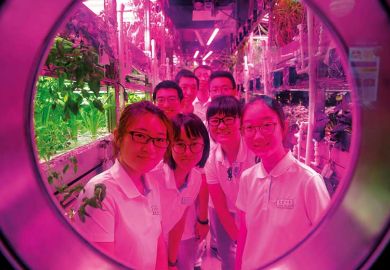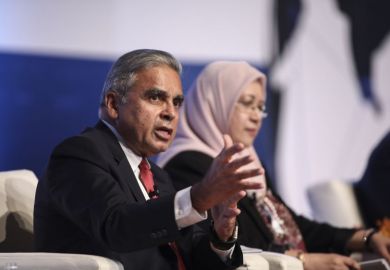Chinese academics based in the US publish in more prestigious journals and are more highly cited than their colleagues who have been lured back home through the nation’s Young Thousand Talents programme, but the differences are small, a new study says.
The paper, published in International Higher Education, compares the research performance of Chinese academics at research-intensive universities in the US and those who had been based abroad but returned to China through the national Young Thousand Talents programme in 2011 and 2012.
The scheme, established in 2011, is an initiative aimed at recruiting early and mid-career researchers from overseas, the majority of whom are Chinese expatriates. Around 4,000 researchers have been supported by the programme.
The study reveals that the two groups have a similar research output, with Chinese-based scholars publishing an average of 39 publications by 2018, compared to 39.4 for their US-based counterparts.
However, those based in the US outperform their colleagues who have returned to China on proxies for research quality.
The average citation count per publication for the Chinese-based scholars was 12.2, compared with 15.9 for the US-based researchers, while those recruited through the talent programme also “tend to publish in less prestigious journals”, according to the paper.
The research also finds an “evident decrease in international collaboration rate after their return to China”.
Before going back to their homeland, 56 per cent of publications by those who later signed up to the Thousand Talents group involved international collaborations. But this dropped to 44.8 per cent after their recruitment under the scheme. In contrast, the US-based researchers maintained a high level of collaboration: 66.2 per cent before 2011 and 65.6 per cent afterwards.
The research was based on data on 546 researchers, 183 of whom were scholars who returned to China through the Young Thousand Talents programme and all of whom received their doctoral degrees in around 2006.
Lili Yang, a doctoral student at the University of Oxford’s Centre for Global Higher Education and co-author of the paper, said that the Chinese returnees may lag on indicators of research quality because “the research assessment system in China tends to pursue short-term goals” and the researchers themselves must adjust to working in a Chinese university.
However, she stressed that there were only “very slight differences” between the two groups.
Giulio Marini, a CGHE research associate at the UCL Institute of Education and co-author of the research, agreed. “China is offering almost the same research conditions as good American research-intensive universities,” he said.
Register to continue
Why register?
- Registration is free and only takes a moment
- Once registered, you can read 3 articles a month
- Sign up for our newsletter
Subscribe
Or subscribe for unlimited access to:
- Unlimited access to news, views, insights & reviews
- Digital editions
- Digital access to THE’s university and college rankings analysis
Already registered or a current subscriber?








